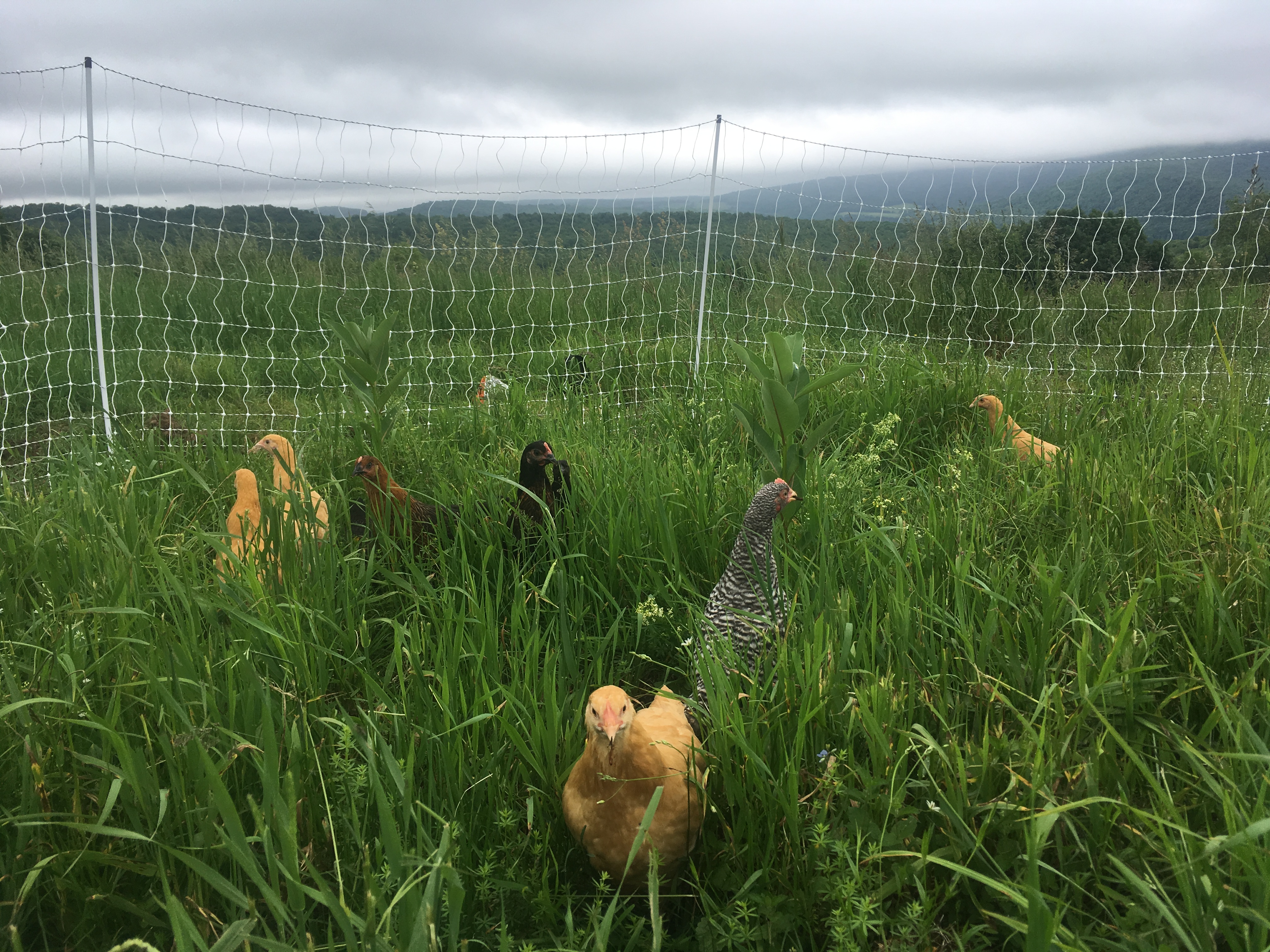As an extension of The Uplands Center’s sustainability initiatives, our staff started hosting a flock of chickens in June. While taking care of such lively and inquisitive animals is a rewarding process, the journey thus far has come with its share of tribulations.
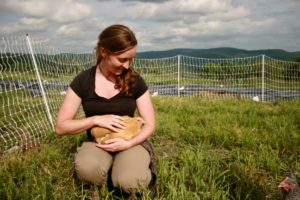
How do chickens relate to sustainability? When you think about the benefits of having a flock of chickens, the first thing that comes to mind is likely a bunch of beautiful, fresh eggs. Long-term, the Uplands would like to supply our kitchen with farm-fresh eggs so that guests can delight in a taste of our bounty. However, delicious eggs are just one advantage of hosting poultry.
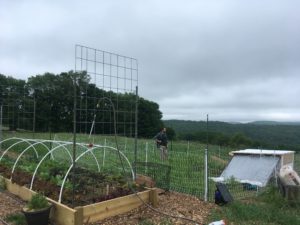
Chickens play a variety of ecosystem functions, and when properly integrated into agricultural practices, they improve the health of the environment. First, these birds scratch up the ground as they search for insects to snack on. In doing so, they 1) aerate the soil, which prevents it from becoming too compacted, and 2) reduce pest pressure by eating slugs, beetles, and other bugs – all of which, when unregulated, can wreak havoc on a garden. As chickens are rotated through the land, they also deposit nutrients and minerals back into the soil through their droppings. Over time, these inputs improve the fertility of the land, which creates a more robust growing environment.
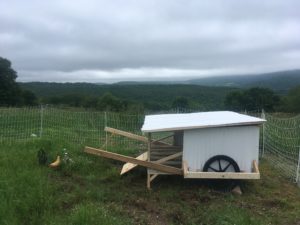
Armed with the understanding of how chickens could help us achieve our land management goals, we took 12 hens and a rooster under our wing. We constructed a moveable chicken coop, allowing the birds to rotate through a future in-ground garden. As they settled into their new home, we enjoyed getting to know them and noticing their individual quirks.
Within a few weeks, it was clear that something was wrong. Some of the hens started acting dizzy, and they progressed from being unbalanced to being unable to stand. Others exhibited “gaping”, or open-mouth breathing, a sign that something was upsetting their digestive tract. When it was clear that a given chicken was not improving, we had to end their suffering . In one case, we woke up to find one of our beloved hens had passed away unexpectedly overnight. On top of it all, none of our hens had laid an egg – a further indicator of ill health.
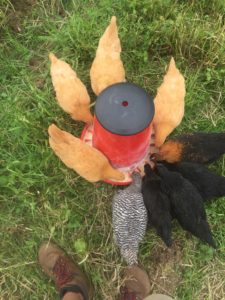
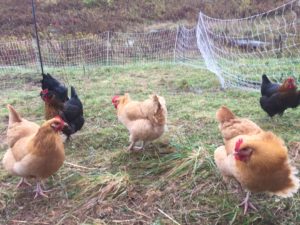 After sending feather samples in to the Cornell Veterinary School and engaging in a follow-up visit from their staff, we discovered that our chickens had been suffering from Marek’s Disease. This is an extremely pernicious herpes virus that causes tumors throughout the birds’ bodies, eventually leading to death. Sadly, our flock had not been vaccinated for this disease – a detail we were unaware of upon taking the birds in. The vaccine would have saved them from their unfortunate ends.
After sending feather samples in to the Cornell Veterinary School and engaging in a follow-up visit from their staff, we discovered that our chickens had been suffering from Marek’s Disease. This is an extremely pernicious herpes virus that causes tumors throughout the birds’ bodies, eventually leading to death. Sadly, our flock had not been vaccinated for this disease – a detail we were unaware of upon taking the birds in. The vaccine would have saved them from their unfortunate ends.
In total, we lost 6 of our original 13 chickens. Feelings of shame, guilt, and sadness were plentiful throughout the ordeal. Being novice chicken-keepers, we couldn’t help but put the blame on ourselves for such misfortune. We had the option of bringing new vaccinated chickens in to expand the flock, but the disruption in social order could potentially stress out our hens, leaving them more susceptible to the disease. There seemed to be no real future in sight for our chickens.
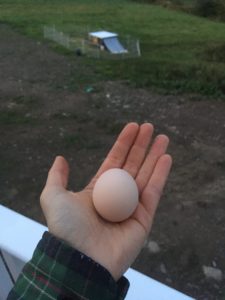
Then, one night while closing up the chicken coop, we discovered a gift from one of our hens: a beautiful egg. We found ourselves speechless as we gazed down at this offering – a symbol of promise for our flock’s destiny. Suddenly, our feelings of ineptitude were replaced by gratitude and hope. Nowadays, we’re provided with five delicious eggs a day from our ladies. While we have experienced an abundance of adversity in our endeavor, we are uplifted every day by this cherished exchange between ourselves and those we care for. The difficulties that arise from the ebb & flow of reciprocity are a small price to pay for the honor of participating.



